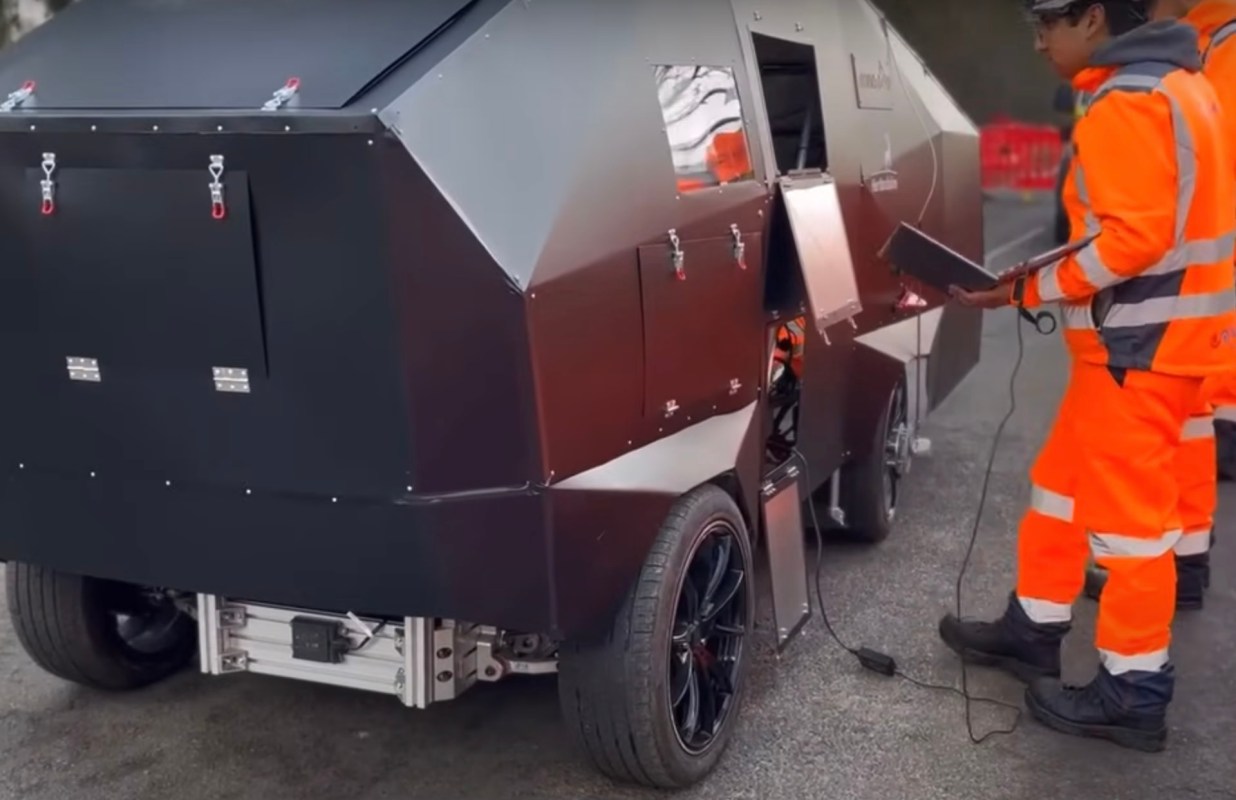U.K. company Robotiz3d has developed an automated system to stop potholes before they start — and is already testing it on public roads in Potters Bar, Hertfordshire, New Atlas reports.
Potholes are the natural result of stress and weathering on asphalt — and are likely to worsen as the weather gets more extreme. As cracks grow and the ground under the road shifts, pieces eventually separate, leaving gaps in the pavement that cause severe bumps that can damage tires.
Usually, potholes are reported and repaired by human road crews. But Robotiz3d's Autonomous Road Repair System (ARRES) will be able to do both, New Atlas reveals.
Currently, plans for the ARRES system include three parts.
The first part, ARRES Eye, was launched in 2023, and is geared toward early detection. Potholes start with cracks that widen when moisture and frost get into them, so the ARRES Eye uses a system of AI-enabled cameras to monitor roads for these small cracks and report back the location and severity of the damage. The cameras are attached to working vehicles like buses, garbage trucks, and maintenance vehicles.
The second part, ARRES Prevent, is more exciting. It uses data from ARRES Eye to identify small cracks that need to be sealed — and then sends a self-driving unit to automatically make those repairs. The unmanned robotic vehicle can operate 24 hours a day and is about the size of a small van. It can also be piloted remotely by a human operator when needed.
According to New Atlas, the ARRES Prevent has successfully completed its first trial.
"This innovative technology has the potential to transform how we perform road maintenance and enhance the driver experience across Hertfordshire and beyond," Technology and Decarbonisation Minister Anthony Browne MP told New Atlas. "It is said a stitch in time saves nine, and that prevention is better than cure — and likewise stopping cracks from growing into potholes could save a lot of future maintenance work."
Keeping roads in better shape will make travel smoother for everyone, especially if this kind of autonomous system can prevent problems from developing. It will also save the time and fuel used on inspecting road damage, which could mean lower costs and less pollution in the long run.
The planned third part of the ARRES system, the ARRES Ultra, will be a larger autonomous unit capable of performing more heavy-duty repairs, New Atlas reports.
Join our free newsletter for weekly updates on the coolest innovations improving our lives and saving our planet.









